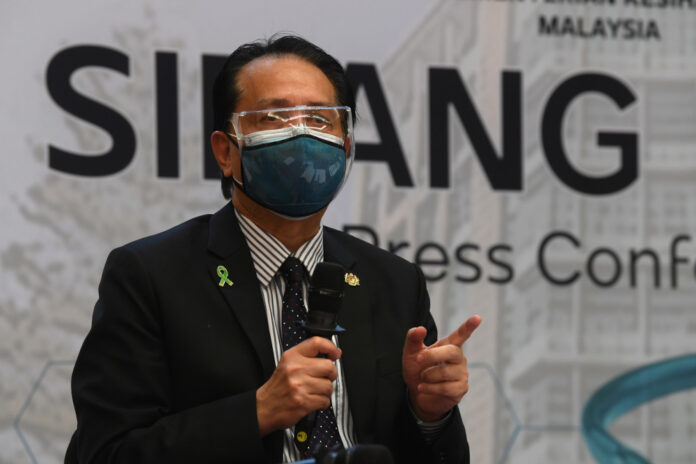Health director-general Tan Sri Dr Noor Hisham Abdullah speaks at a special media conference in Putrajaya, July 13, 2021. — Bernama pic
KUALA LUMPUR, July 17 — With Hari Raya Aidiladha approaching, Health director-general Tan Sri Dr Noor Hisham Abdullah today advised Malaysians of the importance of following pandemic standard operating procedures (SOP) to prevent another surge in Covid-19 cases.
The country’s healthcare system has been overstretched in recent weeks as daily infections climb to five digits, pushing fatigued doctors and nurses past their limits even as more patients enter intensive care units, especially those in the Klang Valley.
“Ministry of Health (MOH) would like to thank all Malaysians who have worked hard in complying with the SOP and continue to remain at home.
“However, there are also a handful of individuals or parties who are too irresponsible as well as selfish to comply with SOPs as well as causing the rise of cases or the occurrence of clusters within the community.
“Therefore, MOH would like to take this opportunity to call society to take heed and not repeat irresponsible behaviour, especially during Hari Raya Aidiladha, which will be celebrated on July 20, 2021,” Dr Noor Hisham said in a statement.
He said interstate and interdistrict travel is still banned under the current SOP, as is the no-visiting rule for those living in the same area or nearby each other.
He pointed out the explosion of clusters that formed as a result of cross-border travel in the past one-and-a-half months. Between June 1 and July 16, Health Ministry data showed 1,010 cases from 21 clusters.
Dr Noor Hisham reminded Malaysians of a similar surge in May following two major festivals — Hari Raya Aidilfitri and Hari Gawai.
Health Ministry statistics showed there were 17,106 new cases, 105 deaths and an outbreak of 267 community clusters from June 1 to July 16.
“These community clusters have risen from past celebratory events (Hari Raya Aidilfitri and Hari Gawai), visiting activities in neighbourhoods or kampungs, meeting among families from different households as well as from funerals.
“Several other community clusters were also caused by interstate travel for activities as mentioned above,” Dr Noor Hisham said.


